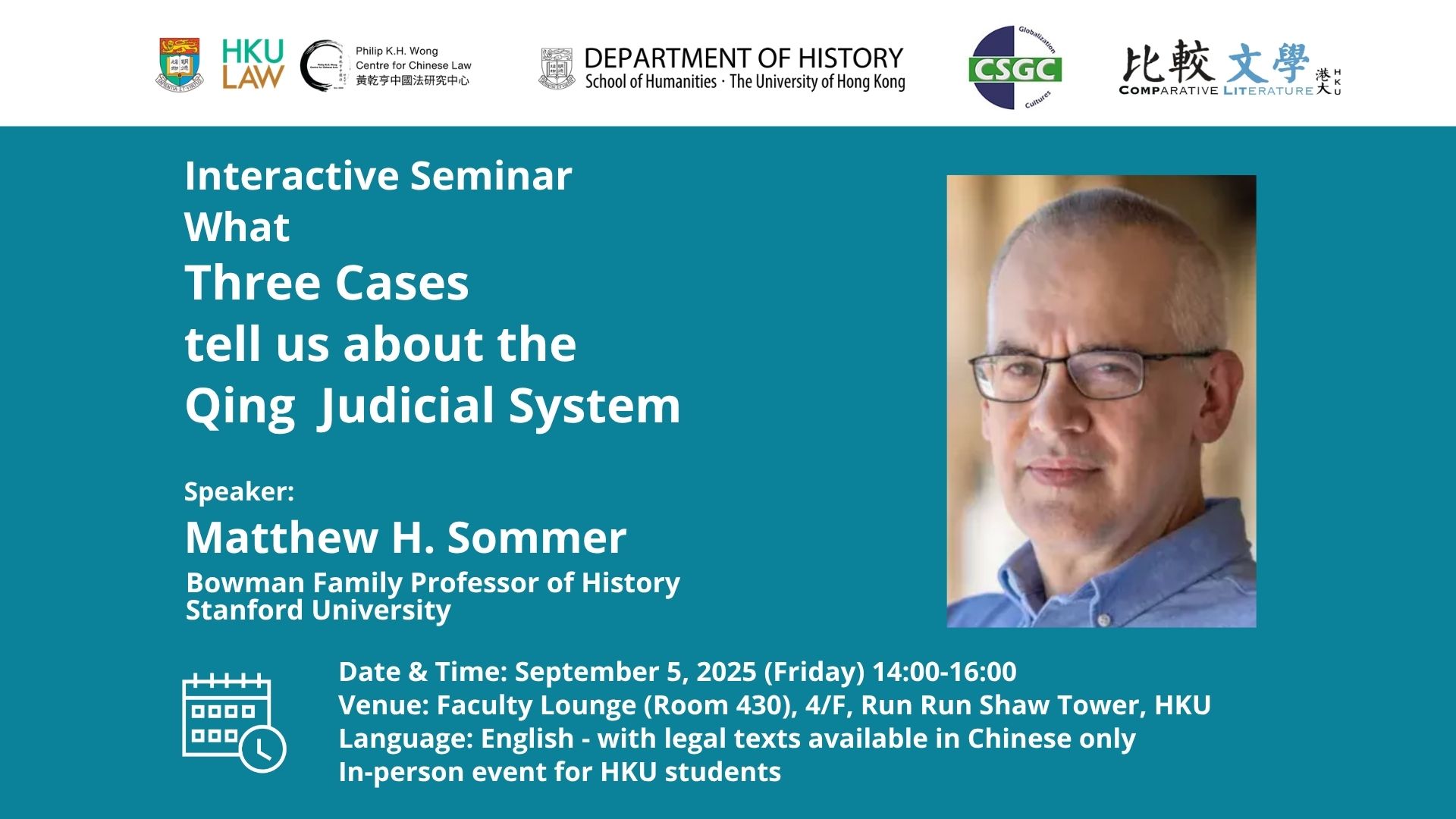
This seminar is co-organised by the Philip K.H. Wong Centre for Chinese Law in the Faculty of Law, and the Department of History and Center for the Study of Globalization and Cultures (CSGC) in the Faculty of Arts at the University of Hong Kong.
Interactive Seminar
What Three Cases tell us about the Qing Judicial System
Speaker:
Professor Matthew H. Sommer, Bowman Family Professor of History, Stanford University
Moderators:
Christine Walker, Associate Professor, Department of History, HKU
Alvin K. Wong, Assistant Professor, Department of Comparative Literature, HKU
Date: Friday, September 5, 2025
Time: 2:00 to 4:00 pm Hong Kong Time
Venue: Faculty Lounge (Room 430) 4/F, Run Run Shaw Tower, The University of Hong Kong
Language: English. The legal texts discussed during the seminar are available in Chinese only.
In-person event for HKU students.
Registration is required: https://hkuems1.hku.hk/hkuems/ec_hdetail.aspx?ueid=102322
During this interactive seminar, Professor Sommer will introduce three texts that illustrate different aspects of the Qing judicial system. The texts will be shared prior to the event to encourage questions and discussion.
Matthew H. Sommer (BA Swarthmore, MA U. of Washington, PHD UCLA) is the Bowman Family Professor of History at Stanford University. A social and legal historian of Qing dynasty China (1644–1912), his research uses original legal case records from local and central archives to explore gender, sexuality, and family. He is the author of Sex, Law, and Society in Late Imperial China (Stanford 2000) and Polyandry and Wife-Selling in Qing Dynasty China (California 2015), which was the inaugural winner of the American Society for Legal History’s Peter Gonville Stein Book Award. His latest book, The Fox Spirit, the Stone Maiden, and Other Transgender Histories from Late Imperial China (Columbia 2024) won the John Boswell Prize from the LGBTQ+ History Association.
